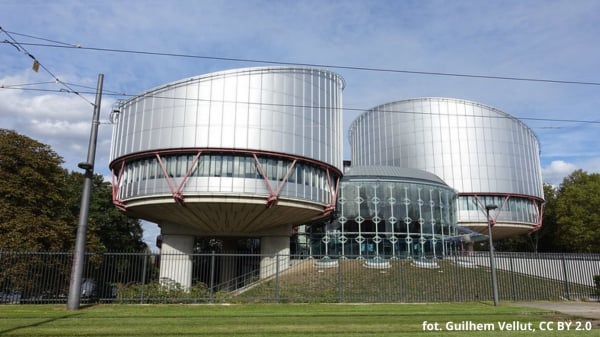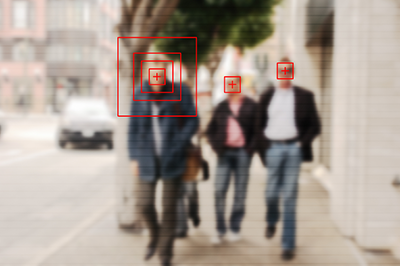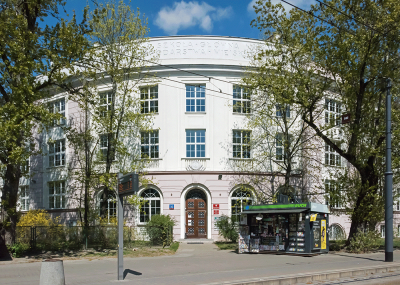
On 21 February 2020, the Secretary General of the Parliamentary Assembly of the Council of Europe sent a letter inviting Poland to submit a list of three candidates for the post of judge of the European Court of Human Rights by 8 March 2021.
A faulty procedure
In May 2020, the Helsinki Foundation for Human Rights, the National Bar Council and the National Association of Attorneys at Law wrote to the Minister of Foreign Affairs, presenting their comments and recommendations concerning the Polish procedure for shortlisting candidates for ECtHR judges. The proposals highlighted, among other things, the need to ensure greater transparency of the procedure and more robust safeguards of independence of the members of the body selecting the candidates. In its response to that statement, the Ministry of Foreign Affairs stressed that it was not possible to make the proposed changes in the current procedure.
Contrary to what had been announced, the ministerial order issued on 2 October 2020 did amend the 2012 order on the appointment of the Team for the selection of candidates for the office of judge of the European Court of Human Rights in Strasbourg. However, the amendment did not address the concerns expressed in the statement of the Helsinki Foundation for Human Rights, the National Bar Council and the National Association of Attorneys at Law. In particular, nothing has been done to resolve the issues relating to the Team’s composition, which not only does not meet the requirement of gender-balanced representation but also includes only representatives of the executive.
Changes needed, but…
The Foundation’s representatives were invited to meet with members of the Ministry’s Team. During the meeting, which took place on 20 November 2020, members of the Team did not contest the raised objections but pointed out that at the then-current stage of the proceedings it was already too late to implement the proposed measures. Such an argument comes as a surprise since the relevant letter co-signed by the Foundation was sent to the Ministry of Foreign Affairs more than three months before the Minister amended the relevant order, almost six months before the Team’s first meeting.
A small but insufficient step…
It is certainly worth noting that the Ministry of Foreign Affairs has taken steps to improve public access to information on the national procedure for the selection of candidates for ECtHR judges by publishing updates on its official website. Moreover, the Ministry recognised the comments and recommendations of the HFHR, the National Bar Council and the National Association of Attorneys by inviting the persons participating in the procedure to voluntarily disclose their names. However, only 3 out of 17 candidates revealed their identity (the Team eventually selected candidates from a shortlist of 15 names). Nevertheless, the key concerns about the shortlisting process have not been addressed as the Team for the selection of candidates for the office of judge of the European Court of Human Rights remains exposed to political pressures and does not allow independent observers to participate in the Team’s activities. These shortcomings can be considered a “primordial sin” of the Polish Government.
The selection procedure under EU scrutiny
Given the national efforts taken so far, members of the coalition monitoring the pending process decided to make the Council of Europe’s Advisory Panel of Experts aware of the problems encountered at the national stage of the procedure.
It is worth recalling that the Advisory Panel is a body of the Council of Europe whose primary tasks are to assist, through consultation, the national bodies responsible for shortlisting candidates for judges of the European Court of Human Rights so that the national procedure guarantees the subsequent selection of the most qualified candidates, which, in turn, materially contributes to the strengthening of the entire European human rights system. In particular, the Panel is tasked to assess whether a candidate complies with all formal legal requirements. It may express a negative opinion on a candidate by providing reasoned information to the state concerned, which in turn should propose another candidate. The panel also analyses received information concerning the course of the national shortlisting procedure. Once the list of candidates is submitted to the Parliamentary Assembly of the Council of Europe, the Advisory Panel presents its opinion to the Assembly. The Panel specifically notifies the Assembly if the candidates communicated by the national Governments comply with the requirements laid down in Article 21 of the European Convention on Human Rights. The opinions of the Council of Europe’s Advisory Panel of Experts on Candidates for Election as Judge to the European Court of Human Rights are not binding but, as the Parliamentary Assembly’s practice clearly shows, they play a crucial role in the judges’ selection procedure.
Since May 2020, the Helsinki Foundation for Human Rights, the National Bar Council and the National Association of Attorneys at Law have been monitoring the election of the new Polish judge of the European Court of Human Rights.
TIMELINE:
- 21 February 2020 – Secretary General of the Parliamentary Assembly of the Council of Europe sends a letter inviting Poland to submit a list of three candidates for the post of judge of the European Court of Human Rights by 8 March 2021.
- 21 May 2020 – The Helsinki Foundation for Human Rights, the National Bar Council and the National Association of Attorneys at Law send a statement to the Minister of Foreign Affairs, presenting comments and recommendations concerning the Polish procedure for shortlisting candidates for ECtHR judges.
- 30 June 2020 – The Ministry of Foreign Affairs responds to the letter. The Ministry declares that no substantive changes are to be introduced to then-applicable Order No. 1 of the Minister of Foreign Affairs of 13 January 2012 on the appointment of a team for the selection of candidates for judge of the European Court of Human Rights.
- 2 October 2020 – The Ministry of Foreign Affairs amends the above Ordinance by another Ordinance (No. 31), calling the amendment a mere update of the nomenclature of the document reflecting changes in the organisational structure which the Foundation considers a highly controversial step.
- 9 October 2020 – the Ministry of Foreign Affairs announces a competition for the post of judge of the European Court of Human Rights requesting that candidates submit their applications by 6 November 2020.
- 20 November 2020 – invited by the Ministry of Foreign Affairs, representatives of the Helsinki Foundation for Human Rights Piotr Kładoczny and Marcin Wolny met with two members of the ministerial team responsible for the selection of the candidates for the Polish ECtHR judge.
- 4 December 2020 – The Helsinki Foundation for Human Rights submitted an access to public information request to the Minister of Foreign Affairs, enquiring about the work carried out by the Team. The HFHR asked for, among other things, a copy of the minutes of the Team’s meeting of 2 December 2020, in an anonymised version, if the Ministry so requires.
- 16 December 2020 – The Ministry responds to the request, providing, among other things, the final list of questions asked to candidates, an anonymised copy of the minutes of the Team’s meeting of 2 December 2020, an anonymised copy of the letters sent to the shortlisted candidates sent to the CoE Advisory Panel and to those who were not shortlisted.
- 21 December 2020 – the Helsinki Foundation for Human Rights, the National Bar Council and the National Association of Attorneys at Law send a statement to the Council of Europe’s Advisory Panel of Experts on Candidates for Election as Judge to the European Court of Human Rights, expressing their reservations over the national selection procedure.


